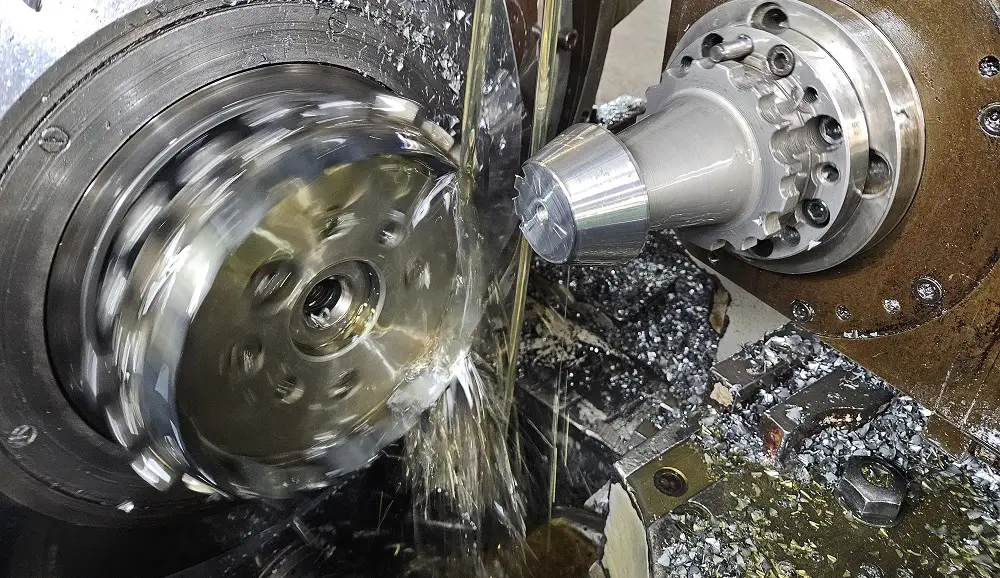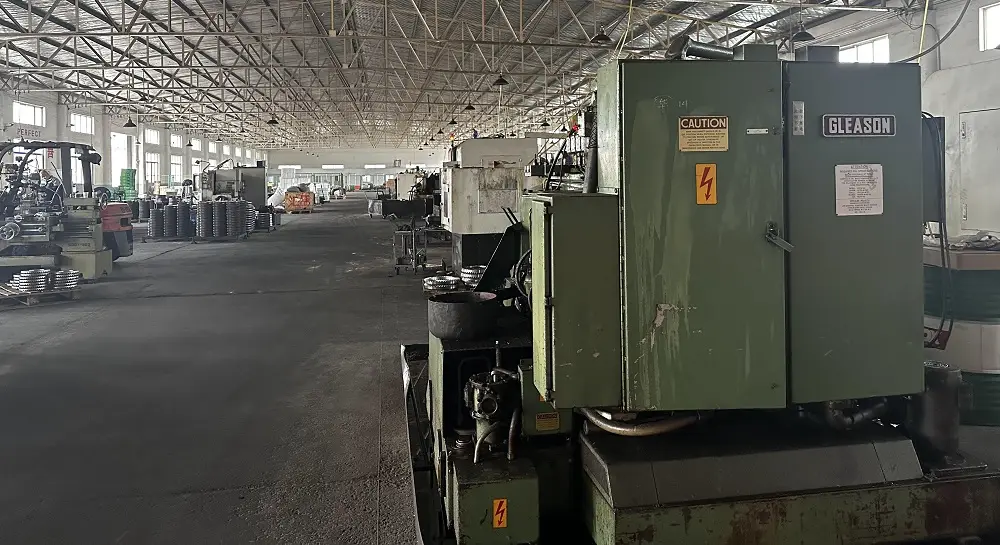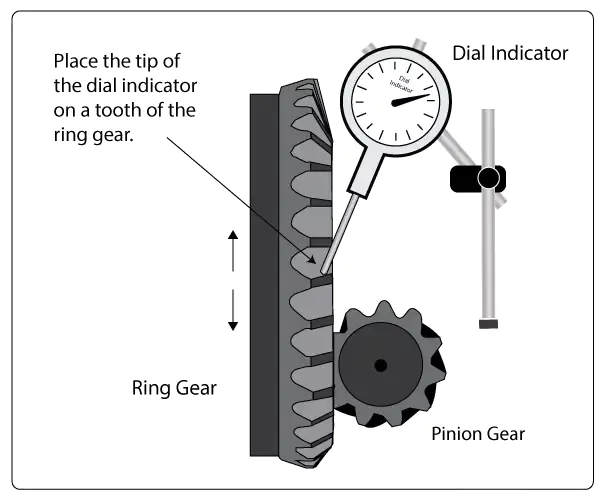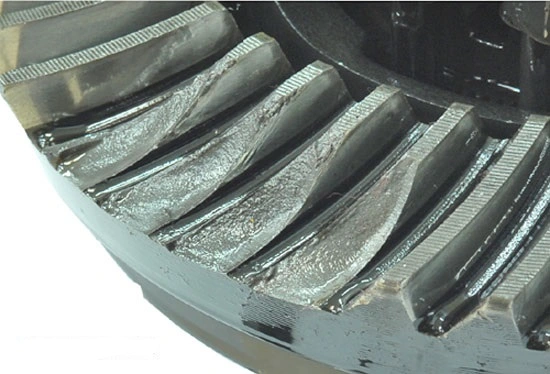1. Ignoring Material Specifications
One of the most common and costly mistakes when sourcing crown wheel and pinion gears is ignoring material specifications. The type of steel used plays a major role in determining the gear’s strength, resistance to wear, heat tolerance, and operational lifespan.
Some suppliers may offer cheaper alloys that appear adequate on paper but underperform in real-world, high-stress conditions. These inferior materials may deform, wear prematurely, or fail under load—leading to costly breakdowns and downtime.
It’s essential to confirm material details with the manufacturer. High-grade alloy steels, especially those treated with carburizing or induction hardening, offer much better durability and performance. A well-known and reliable choice is 8620 steel—an alloy with excellent hardenability, toughness, and fatigue resistance. It’s commonly used in automotive and industrial gear applications because it balances core strength with a hard, wear-resistant surface.
Always request documentation or certification to ensure the material meets required industry standards, especially for mission-critical machinery.

2. Overlooking Precision Tolerances and Backlash Requirements
Gears that look identical may perform very differently due to small variances in tolerances and backlash. Precision tolerances determine how well the crown wheel and pinion mesh together. Backlash, the small gap between mating teeth, plays a crucial role in absorbing shock and preventing binding.
A mismatch in these dimensions can cause vibrations, excessive noise, and premature wear. In worst-case scenarios, poor meshing can lead to gear tooth breakage or total system failure.
When sourcing gears, make sure to specify the required tolerances and backlash suited to your machinery. Don’t assume that off-the-shelf gears will fit your existing setup without modification. Consult with engineering teams or the gear manufacturer to ensure compatibility with your system’s design and load conditions.
Suppliers that utilize CNC machining systems based on the Gleason platform are generally more reliable when it comes to producing high-precision crown wheel and pinion gears. The Gleason CNC system is internationally recognized in the gear manufacturing industry for its advanced capabilities in cutting, grinding, and testing bevel and hypoid gears. Its ability to maintain consistent tooth geometry, tight dimensional tolerances, and optimized backlash across production batches significantly reduces variability and increases long-term gear performance. Choosing a manufacturer equipped with Gleason CNC technology greatly enhances the likelihood that the gears will meet demanding mechanical requirements and deliver stable, durable results in critical applications.

3. Choosing Price Over Quality
It’s tempting to go with the lowest quote, especially when sourcing large quantities. But with gears, price and quality are closely linked. Low-cost gears often compromise on materials, heat treatment, and machining accuracy. While the initial savings may look good, the long-term costs can be significant.
Cheap gears are more likely to wear out early, cause unplanned maintenance, or damage surrounding components. Every hour of unplanned downtime can cost thousands in lost productivity and repairs.
Instead of focusing solely on the price, evaluate the manufacturer’s quality control systems.
- Are they using CNC machining for high precision?
- Do they have in-house testing facilities?
- Are they using high-quality alloy steel such as 8620, known for its strength, wear resistance, and fatigue performance?
- Do they offer a warranty or guarantee?
Paying slightly more for a trusted supplier often results in better performance, fewer failures, and lower total cost of ownership.

4. Failing to Vet the Manufacturer or Supplier
Another major error is assuming that all manufacturers adhere to the same quality standards. In reality, the gear manufacturing industry varies widely in capability and accountability. Sourcing from an unknown or unverified supplier is a gamble.
Problems like inconsistent heat treatment, inaccurate tooth profiles, or substandard raw materials can arise without a robust quality assurance process. Additionally, poor communication and unreliable logistics can delay delivery or lead to miscommunication about technical specs.
Before placing an order, research the supplier’s track record. Ask for case studies, customer testimonials, or references. If possible, request a factory visit or video tour to verify their production facilities and processes. A reputable supplier should be transparent, responsive, and willing to answer technical questions.
Also, check if the manufacturer complies with industry standards like ISO 9001 or IATF 16949. These certifications indicate a commitment to consistent quality and continuous improvement.
5. Not Considering Customization or Application-Specific Engineering
Not all applications can use generic or standard gear designs. High-torque, high-speed, or high-precision systems often require custom gear solutions to ensure performance and reliability. One-size-fits-all rarely applies in the world of mechanical power transmission.
A common mistake is trying to force a standard gear into a specialized system, resulting in suboptimal performance, increased wear, or even mechanical failure.
If your application has unique requirements—such as unusual load profiles, compact space constraints, or environmental challenges (like high humidity or temperature extremes)—work with a supplier who offers engineering support. Custom-cut gears, tailored tooth profiles, or advanced surface treatments might be necessary.
Involve your engineering team early in the sourcing process and provide detailed application data. The more your supplier understands your operating environment, the better they can recommend or design a suitable solution.
Conclusion
Crown wheel and pinion gears may be small compared to the machinery they power, but their impact on performance and reliability is massive. Sourcing them correctly requires more than checking a few boxes. You need to scrutinize material quality, ensure precision tolerances, prioritize long-term value over short-term savings, verify your suppliers, and stay open to custom solutions.
Avoiding the five mistakes outlined above can save time, money, and headaches. It also ensures that the gears you source will perform under pressure, deliver consistent results, and extend the lifespan of your equipment. Whether you’re replacing worn parts or building new systems, careful sourcing of crown wheel and pinion gears is an investment in your operation’s future.
In summary, XJX Parts is a trusted manufacturer of crown wheel and pinion gears. If you have sourcing needs, you can confidently reach out to them. They provide dependable service, deliver consistently high-quality products, and offer excellent value for money. Their commitment to precision, durability, and customer support makes them a strong partner in any gear-driven application.



